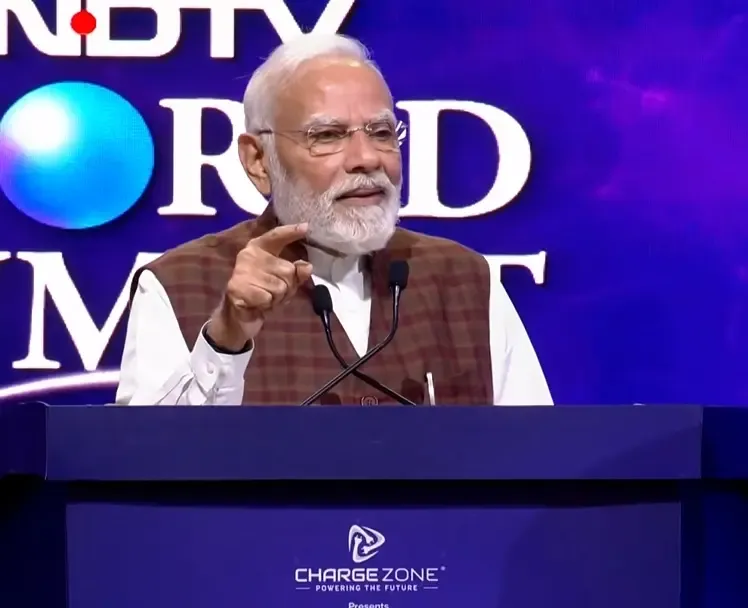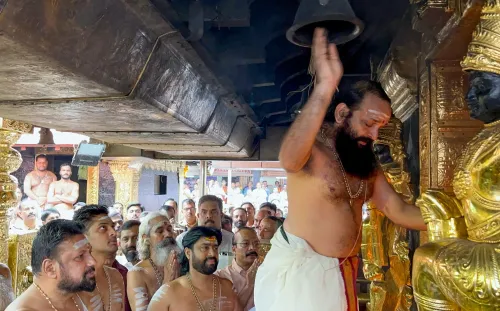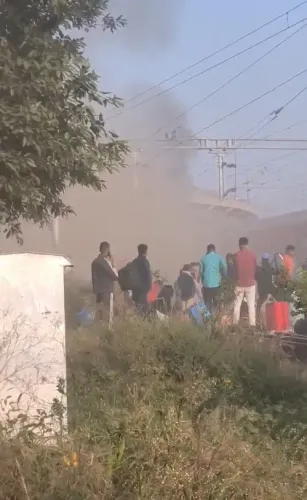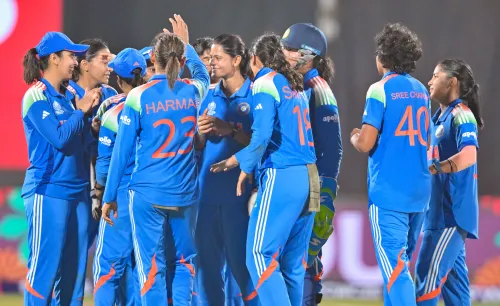How is PM Modi Reinforcing India’s Firm Response to Terrorism?

Synopsis
Key Takeaways
- India's shift from silence to decisive action.
- Operation Sindoor as a testament to military capability.
- Focus on national security and economic resilience.
- Collaboration among Indian military forces.
- Global dialogue on leadership and innovation.
New Delhi, Oct 17 (NationPress) Prime Minister Narendra Modi presented a compelling address at the NDTV World Summit 2025, held at the Bharat Mandapam, emphasizing that India has advanced beyond mere silence to execute resolute actions against terrorism.
In alignment with the summit’s theme, “Edge of the Unknown: Risk, Resolve, Renewal,” PM Modi pointed to Operation Sindoor as a definitive illustration of India’s assertive stance against cross-border terrorism, receiving enthusiastic applause from esteemed attendees including Sri Lankan Prime Minister Harini Amarasuriya, former UK Prime Minister Rishi Sunak, and former Australian Prime Minister Tony Abbott.
“The era of a silent India is over,” PM Modi asserted. “Now, the self-reliant India does not remain silent. It responds appropriately through surgical strikes, airstrikes, and Operation Sindoor.”
His comments referenced the bold military operation on 7 May 2025, during which Indian forces executed coordinated strikes across Pakistan-occupied Kashmir (PoK) and Pakistan’s Punjab province, targeting terror infrastructure associated with Lashkar-e-Taiba, Jaish-e-Mohammed, and Hizbul Mujahideen. This operation, executed collaboratively by the Indian Air Force, Indian Navy, and Indian Army, utilized stand-off precision missiles to obliterate multiple terrorist facilities, neutralizing over 100 operatives.
This action was a direct response to a devastating assault in Jammu and Kashmir’s Pahalgam on 22 April, which resulted in 26 fatalities, underscoring India’s zero-tolerance policy towards terrorism.
PM Modi’s address occurred amid elevated tensions with Pakistan, signifying India’s transition from restraint to a proactive defense posture.
The Prime Minister characterized Operation Sindoor as part of a wider strategy, following previous surgical strikes in 2016 and the Balakot airstrike in 2019, which targeted terror camps post-attacks in Uri and Pulwama. These actions, he posited, represent a new India—self-assured and determined—prioritizing national security while cultivating regional stability.
The summit served as a global platform for dialogue, amplifying PM Modi’s message, which aligned with its aim of navigating uncertainty through decisive leadership.
Beyond security, PM Modi underscored India’s economic resilience amidst worldwide upheaval. “Post-COVID, the headlines were filled with conflicts and wars. Yet, India continued to advance,” he remarked, highlighting an average economic growth rate of 7.8% over the past three years.
He referenced recent statistics indicating a 7% increase in merchandise exports, announced just two days earlier, as proof of India’s strong trajectory despite global slowdowns. This economic strength, he implied, reinforces India’s ability to face security challenges while maintaining progress.
The NDTV World Summit, inaugurated on Friday, brought together a diverse array of policymakers and cultural figures, with Modi’s keynote establishing a compelling tone. His vision of a self-reliant India, resolute against terrorism and flourishing economically, resonated as an urgent call for determination.
As discussions on geopolitics and innovation persist, PM Modi’s commitment to protecting India’s sovereignty while promoting growth positions the nation as a significant force on the global stage.









